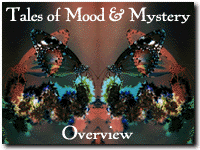 |
|||||||
| Genre
Definitions
Gothic Literature Gothic literature is characterized by gloomy settings such as castles and old, dark houses, in which mysterious and sometimes violent or supernatural occurrences take place. Originally, the term Gothic was confined to a specific genre of mostly 18th and 19th Century British literature. Mary Wollstonecraft Shelley's, Frankenstein and Bram Stoker's Dracula are perhaps the most famous examples of this tradition, although the works of Ann Radcliffe and Emily Bronte figure prominently as well. We might consider this tradition to be Gothic with a capital G. Many of the stories of Edgar Allen Poe contain gothic elements, such as the crumbling manor in The Fall of the House of Usher or the gloomy catacombs in The Cask of Amontillado. Critics, therefore, often include such works as these, as well as some of the works of other prominent American authors such as Henry James and Ambrose Bierce. |
|||||||
| Frederick Frank, Professor of English at Allegheny University, believes that the tradition of gothic literature, as practiced in America, "rapidly diverged from the European model just as our country had broken away from England". Frank states that the American gothic reflects a "unity of mood and theme". He traces the emergence of a distinct tradition of American gothic from the work of the late-Eighteenth Century author, Charles Brockden Brown, to more contemporary authors such as H.P. Lovecraft, Shirley Jackson, Joyce Carol Oates, all the way to Stephen King. He even argues that Moby Dick by Herman Melville, considered by many critics to be the greatest American novel ever written, is an example of American gothic. | |||||||
|
David Punter, British author and lecturer in the School of English and American Studies at the University of East Anglia, likewise treats both British and American gothic traditions separately, but attempts to bridge them through common themes of social alienation and psychological fear and repression. He represents one of a growing number of academics and serious literary critics who refuse to dismiss this body of literature as mere escapism. Although, he recognizes distinct American and British traditions, Punter is also one of the leaders of a growing trend of analysts who choose to group much of the literature of horror and mystery on both sides of the Atlantic under the single genre heading of Gothic Literature.
|
|||||||
| References
Punter, D. (1980) The Literature of Terror: A History of Gothic Fictions from 1765 to the Present Day. Longman: Hong Kong. Frank, F. S. (1990) Through the Pale Door: A Guide to and through the American Gothic. Frank, Greenwood Press: Westport, Conn. On-line resource (this page will open in new browser window so you don't need to leave this site to view it). An outstanding site featuring links to e-text versions of gothic stories and novels can be found at Jack G. Voller's The Literary Gothic. |
|||||||
|
|
|||||||
|
Horror is a genre of literature which is often characterized by supernatural creatures and fantastic occurrences, as well as by violence and death. |
Here are the top 40 horror books of all time, as chosen by the Horror Writers Association, http://www.horror.org (featuring the Stoker Awards annual competition for best horror writing). |
||||||
| Note: This list is alphabetical by surname; no ranking is implied. (Note the predominance of American authors here, not to mention the inclusion of Thai author, S.P. Somtow.) | |||||||
Compiled by Thomas Deja and Nicholas Kauffman |
|||||||
|
|
|||||||